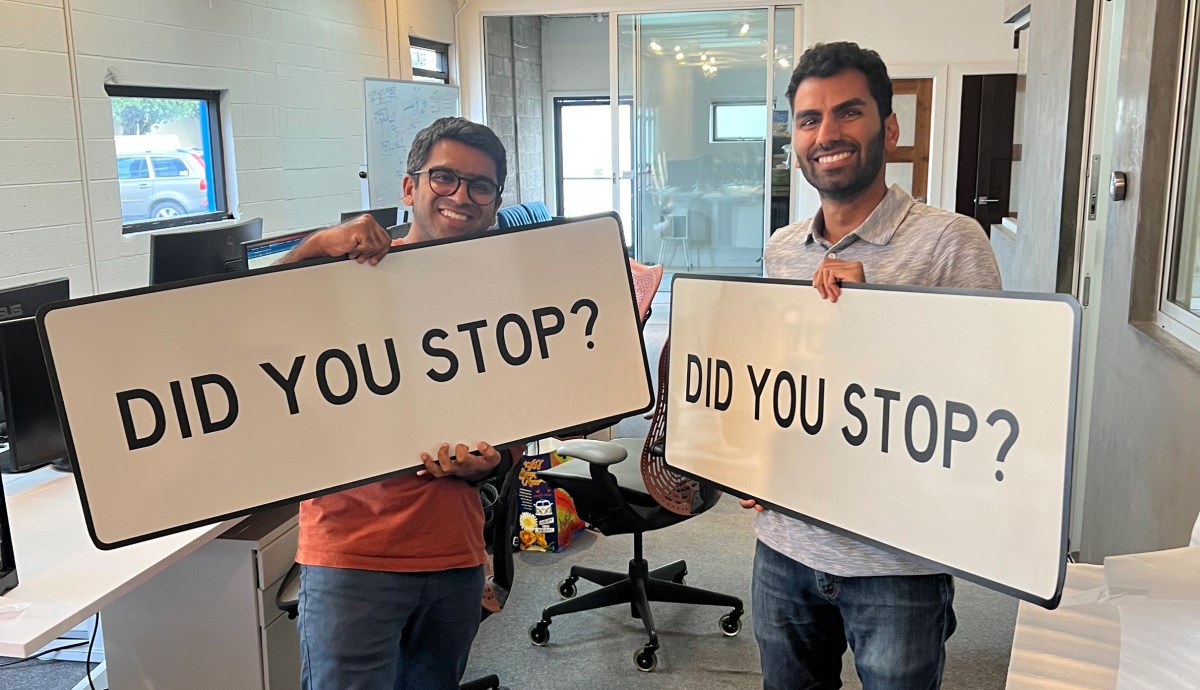
Obvio’s AI Stop-Sign Cameras Aim to Cut Dangerous Driving While Limiting Surveillance
Sources: https://techcrunch.com/2025/06/04/obvios-stop-sign-cameras-use-ai-to-root-out-unsafe-drivers
TL;DR
- Obvio deploys solar-powered stop-sign camera pylons with on-device AI to detect traffic violations.
- The system matches license plates to state DMV databases and forwards verified violations to local authorities.
- Footage is processed on-device; only violations trigger data leaving the device; typical retention is about 12 hours.
- Obvio provides the technology to municipalities for free and earns revenue from issued citations; governance varies by state.
- A $22 million Series A led by Bain Capital Ventures funds expansion beyond Maryland’s first five cities. TechCrunch
Context and background
American streets remain hazardous for pedestrians, and Obvio positions its solution as a way to improve safety without creating a broad surveillance state. The San Carlos, California–based startup was founded by Ali Rehan and Dhruv Maheshwari, who previously worked at Motive, a company focused on dashboard cameras for trucking. The founders argue that combining education, engineering, and enforcement can yield measurable safety improvements without sacrificing civil liberties. In their view, the U.S. lags behind other modern nations in traffic safety culture and enforcement, and their approach aims to address that gap with stop-sign cameras that are visible, affordable, and privacy-conscious. Obvio’s cameras are designed to be conspicuous enough to support education and awareness, while the hardware and software are built to minimize the potential for misuse. The company emphasizes its intent to avoid turning surveillance tools into revenue grabs, instead focusing on deterring the most egregious offenses and fostering community trust. TechCrunch
What’s new
Obvio has completed a $22 million Series A funding round led by Bain Capital Ventures. The funds will help the company scale beyond its initial five Maryland cities and expand its footprint to additional municipalities. The product combines a solar-powered, conspicuous pylon with an on-device AI system trained to identify the worst stop-sign or related infractions. When an infraction is detected, the system links the vehicle’s license plate to the state DMV database for verification before a citation is issued. The approach emphasizes verification by Obvio staff or contractors prior to alerting law enforcement. From a privacy and data-sharing perspective, Obvio’s architecture is designed so that footage stays on the device unless a violation is identified. In practice, footage is retained on the device for about 12 hours before deletion, and the municipalities retain ownership with remote access. This model is intended to reduce the risk of broad surveillance beyond the intended enforcement use. TechCrunch
Why it matters (impact for developers/enterprises)
The Obvio approach illustrates a hybrid model of automated enforcement that seeks to balance safety with privacy. For municipalities and developers building traffic-safety tech, the key questions include:
- How to ensure accuracy in infraction detection and reduce false positives
- How to structure data retention, sharing, and ownership so that communities retain trust
- How to align incentives so that enforcement supports behavior change rather than just revenue generation Investors like Bain Capital Ventures view the on-device processing and local data governance as critical to ensuring long-term acceptance and legitimacy of automated enforcement technologies. Ajay Agarwal, a Bain partner, notes that while short-term profits might tempt broader data use, a privacy-conscious model can limit reputational risk and expand adoption over time. TechCrunch
Technical details or Implementation
- On-device AI: The camera pylon processes video locally to detect violations. Only verified violations trigger data leaving the device for enforcement action.
- Violation types: The system is described as capable of identifying stop-sign infractions and other offenses such as speeding, crosswalk violations, illegal turns, unsafe lane changes, and distracted driving.
- License plate verification: When a potential violation is detected, Obvio matches the car’s license plate to the state DMV database for verification before forwarding data to authorities.
- Data handling: Footage remains on the device for approximately 12 hours and is then deleted. Municipalities own the footage and can access it remotely.
- Business model: Obvio offers the technology to municipalities at no cost and makes money from citations issued using the system; exact revenue-sharing depends on state regulations.
Key facts at a glance
| Feature | Description
| --- |
|---|
| Processing location |
| Data leaving device |
| Retention |
| Data ownership |
| Revenue model |
| Initial footprint |
Key takeaways
- Obvio aims to reduce dangerous driving with visible, affordable, and privacy-conscious stop-sign cameras.
- All processing is designed to occur on-device, with minimal data leaving the device.
- The company’s model ties revenue to citations, while governance varies by state law and local agreements.
- The funding round signals investor confidence in a safety-focused, privacy-preserving automated-enforcement approach.
- Community trust and clear data governance are central to the long-term viability of this model.
FAQ
-
How does Obvio’s system work?
A solar-powered camera at a stop sign uses on-device AI to detect offenses; license plates are matched against the DMV database after a potential violation is detected, and verified infractions are sent to law enforcement for citation.
-
How is privacy protected?
Footage is processed locally; only validated violations leave the device, and on-device footage is retained for about 12 hours before deletion; municipalities own the footage and can access it remotely.
-
What is the business model?
The technology is provided to municipalities for free; Obvio earns revenue from citations, with sharing terms varying by state regulations.
-
What’s new with Obvio?
A $22 million Series A led by Bain Capital Ventures will fund expansion beyond Maryland’s initial five cities and scale deployment.
-
Who is behind the project?
Founders Ali Rehan and Dhruv Maheshwari bring experience from Motive, a developer of trucking dashcams, and emphasize combining education, engineering, and enforcement for safety.
References
- Obvio’s stop-sign cameras and funding are detailed in TechCrunch: Obvio’s AI stop-sign cameras aim to cut dangerous driving while limiting surveillance
More news
What’s New in CUDA Toolkit 13.0 for Jetson Thor: Unified Arm Ecosystem and More
CUDA Toolkit 13.0 for Jetson Thor unifies ARM toolchains, enables Unified Virtual Memory, advanced GPU sharing, OpenRM/dmabuf interoperability, NUMA support, and enhanced developer tools for edge AI workloads.
How one AI startup helps rice farmers battle climate change
Mitti Labs uses AI to measure methane emissions from flooded rice paddies and partners with The Nature Conservancy to expand regenerative, no-burn farming in India, while tracking carbon credits to support farmers.
Beyond the basics: A comprehensive framework for foundation model selection in generative AI
This article outlines a systematic evaluation framework for choosing foundation models in Amazon Bedrock, combining theory with practical steps to balance performance, cost, and operational needs.
Google Pixel Watch 4: AI-powered health coach, repairable design, and Satellite SOS
Pixel Watch 4 adds a domed Actua 360 display, faster charging, repairable components, Gemini-powered health coaching, Satellite SOS, and on-device AI with the Snapdragon W5 Gen 2 — all aimed at a more capable, long-lasting wearable.
Meta to add 100MW of solar power from US gear to back SC AI data center
Meta signs a $100 million, 100 MW solar farm deal with Silicon Ranch in South Carolina to power a planned AI data center, with most equipment made in the U.S. Operations expected in 2027.
Harvard dropouts unveil 'always-on' AI smart glasses that listen, record, and transcribe every conversation
Two former Harvard students claim to be building Halo X, discreet smart glasses with an always-on microphone, real-time transcription, and AI-driven prompts — raising questions about privacy, security, and legality.




